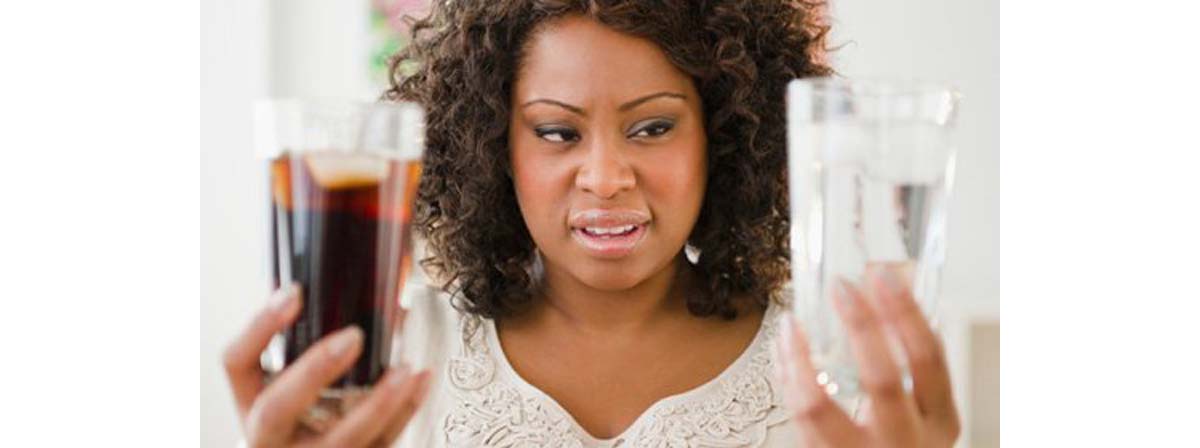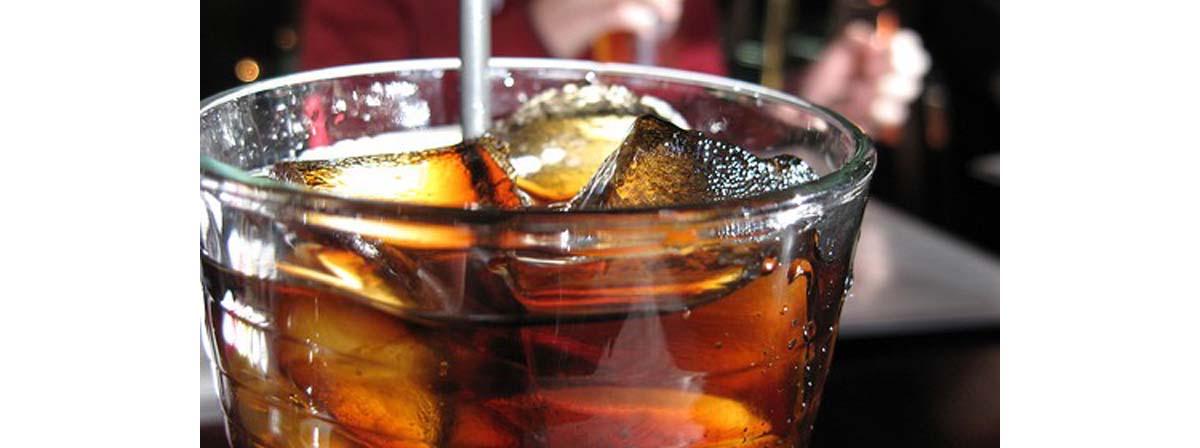There has been a concern for some time that high consumption of sugary drinks such as colas, for instance, is bad for your health for a number of various reasons. Bloomberg, who is the Mayor of New York City, is so concerned about sugary drinks that he even tried to ban the largest sizes of these drinks from being sold completely. Not only are these drinks bad for the teeth, being acidic as well as having high sugar content, but they are surprisngly high in calories too. Hence drinking too many of these sugary drinks can lead to ‘unconscious’ consumption of a large proportion of daily calories and weight gain over time.

Sodas and type 2 diabetes
A team of researchers in the UK analyzed data from over 27,000 people looking for a connection between consumption of certain types of drinks and the development of type 2 diabetes. The drinks were sugary sodas, juices and nectars, as well as the artificially-sweetened drinks.
When allowance was made for the influence of high overall energy intake and high body mass index on the results, an increase in the risk of diabetes in patients of 18 percent still remained – but only for the sugar-sweetened drinks - not the diet drinks. (It was possible that people who ate more or were more obese, and therefore are already at risk of developing diabetes, chose to have the diet drinks. The implication of this being that the drinks were not actually the cause of the diabetes in patients).
No link was found between drinking juices and nectars and the development of diabetes in this particular study.
This study was taken in a European population but similar results have been seen in American studies too.
The link between sugar consumption and diabetes
It is known that high sugar consumption, particularly from drinks, is associated with development of type 2 diabetes.
This is a prediabetic condition in which cells become less sensitive to the effects of insulin, which lowers your blood sugar levels. The pancreas churns out increasing quantities of insulin to try and overcome the resistance and eventually, it becomes exhausted. By this stage the person would have acquired type 2 diabetes and be looking at a life with daily insulin shots to replace the pancreas’ function.
The other factor with sugary drinks is that the sugar is rapidly absorbed (quicker than when you eat foods) and leads to a ‘spike’ in blood glucose levels, requiring an equivalent hike in insulin levels to return glucose levels to normal. When rapid increases in the blood glucose and insulin levels become frequent, they can also lead to the development of insulin resistance and all that it entails.
Diet Sodas May Also Carry A Risk Of Diabetes
Diet sodas may have been seen as not a threat in the last study, but that might not be the case. Although the increased risk found in the study for diet sodas dropped out of the equation in the study above when factors such as calorie intake and body mass index were factored in, other studies have shown that they are not free from risk.

French researchers studied a group of over 66,000 women from 1993 to 2007, monitoring diet and the incidence of type 2 diabetes.
And in contrast to the study above, the risk remained even when increased body mass index was factored in.
The risk for developing diabetes was highest in the women who drank more than 359 millilitres (little more than one can = 355ml) of sugar-sweetened, or more than 603ml of diet soda, per week. Even after allowing for confounding factors such as high body mass index, there was still a significant link between drinking diet sodas and development of type 2 diabetes.
No link was found between drinking 100% fruit juices and diabetes, in this study.
How can diet sodas cause diabetes?
There a number of theories, one being that drinking diet sodas leads to a preference for sweet foods and also stimulates appetite. Some studies have also shown that although not sweetened with sugar, diet sodas cause similar increases in insulin levels (which normally follows intake of sugar) to sugary drinks.
The authors of the San Antonio heart study have even suggested that diet sodas may be the cause of current obesity problems, rather than the solution. But more research is needed into the association.
So is it better to drink regular sodas instead of diet ones?
No, this is not the message from these studies. The association between sugary sodas and diabetes is clear and they are also linked with tooth decay and weight gain. So I’m afraid they really have nothing in their favor.
Although a link between diet sodas and diabetes is starting to emerge, not all studies have confirmed it, so the link is not as clear cut. So of the two, drinking diet sodas maydo less harm – but this is not guaranteed. The best strategy to avoid diabetes, especially if you have risk factors such as being overweight, is to stick to good old tea and coffee (without sugar!) and water.
So they might be your best bet, but bear in mind that these should also be drunk in moderation as they are relatively high in calories and contain tooth-eroding acids.
In the case of children, it is probably much better to encourage them to drink fruit juices and water from an early age, in preference to sodas. Good luck with that one!
- link.springer.com/article/10.1007%2Fs00125-013-2899-8#
- Fagherazzi G, Vilier A, Saes Sartorelli D, Lajous M, Balkau B, Clavel-Chapelon F. Consumption of artificially and sugar-sweetened beverages and incident type 2 diabetes in the Etude Epidemiologique aupres des femmes de la Mutuelle Generale de l'Education Nationale-European Prospective Investigation into Cancer and Nutrition cohort. Am J Clin Nutr. 2013, 97(3), 517-23
- Photo courtesy of SpouseLinkOrg AAFMAA photos by Picasa : lh4.googleusercontent.com/-un45iL8iwfQ/URve_TiPuvI/AAAAAAAAAg0/9h0iLnEtkz0/s630/diet%2520soda%2520diabetes.jpg
- Photo courtesy of Willieam Hartz by Flickr : www.flickr.com/photos/whartz/1926422258/
- www.kickthecan.info/files/documents/Fagherazzi-2013%20ajcn%20ArtificalSweeteners_Diabetes%20Risk.pdf


Your thoughts on this